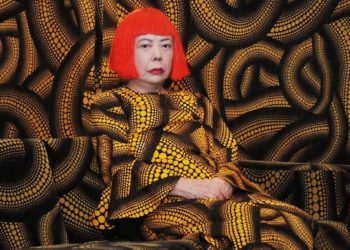DOHA, Qatar (AP) — President Donald Trump said Thursday that the United States and Iran have “sort of” agreed to terms on a nuclear deal, offering a measure of confidence that an accord is coming into sharper focus.
Trump, in an exchange with reporters at a business roundtable in Doha, Qatar, described the talks between American envoy Steve Witkoff and Iranian Foreign Minister Abbas Araghchi as “very serious negotiations” for “long-term peace” and were continuing to progress.
Still, throughout his visit with Arab Gulf leaders this week, the president has underscored that military action against Iran’s nuclear facilities remains a possibility if the talks derail.
“Iran has sort of agreed to the terms: They’re not going to make, I call it, in a friendly way, nuclear dust,” Trump said at the business event. “We’re not going to be making any nuclear dust in Iran.”
Without offering detail, he signaled growing alignment with the terms that he has been seeking.
But a top political, military and nuclear adviser to Iran’s supreme leader, Ayatollah Ali Khamenei, told NBC News on Wednesday that Tehran stands ready get rid of its stockpiles of highly enriched uranium that can be weaponized, agree to enrich uranium only to the lower levels needed for civilian use and allow international inspectors to supervise the process.
Ali Shamkhani added that in return, Iran wants an immediate lifting of all economic sanctions.
Trump said his demands have been straightforward.
“They can’t have a nuclear weapon. That’s the only thing. It’s very simple,” Trump said. “It’s not like I have to give you 30 pages worth of details. It is only one sentence. They can’t have a nuclear weapon.”
But Trump on Wednesday suggested he was looking for Tehran to make other concessions as part of a potential agreement.
Iran “must stop sponsoring terror, halt its bloody proxy wars and permanently and verifiably cease pursuit of nuclear weapons,” Trump said in remarks at a meeting in Saudi Arabia of leaders from the Gulf Cooperation Council. “They cannot have a nuclear weapon.”
Wrapping up his time in Qatar, Trump stopped at a U.S. installation at the center of American involvement in the Middle East and spoke to U.S. troops. The Republican president has used his four-day visit to Gulf states to reject the “interventionism” of America’s past in the region.
Al-Udeid Air Base was a major staging ground during the U.S. wars in Iraq and Afghanistan. The base houses some 8,000 U.S. troops, down from about 10,000 at the height of those wars.
Trump told the troops that his “priority is to end conflicts, not start them.”
“But I will never hesitate to wield American power if it’s necessary to defend the United States of America or our partners,” he said.
Trump has held up Gulf nations such as Saudi Arabia and Qatar as models for economic development in a region plagued by conflict. He urged Qatari officials to use their influence to entice Iran to come to terms with his administration on a nuclear deal.
Trump later flew to Abu Dhabi in the United Arab Emirates for the final leg of his trip. He visited the Sheikh Zayed Grand Mosque, the country’s largest mosque. The UAE’s founder, Sheikh Zayed, is buried in the mosque’s main courtyard.
Trump took his shoes off, which is customary, as he stepped into the house of worship and spent time marveling at the architecture.
“It’s beautiful,” Trump said.
He was later hosted for a state visit in the evening by UAE President Mohammed bin Zayed Al Nahyan at the Qasr Al Watan presidential palace. Trump and his delegation were greeted by young children wearing the traditional robe and waving small U.S. and UAE flags.
Earlier in the week, Trump met with Syrian President Ahmad al-Sharaa and announced plans to ease sanctions on the war-torn country. The U.S. has deployed more than 1,000 troops in Syria for years to suppress a return of the Islamic State group.
Trump praised al-Sharaa, who was tied to al-Qaida and joined insurgents battling U.S. forces in Iraq before entering the Syrian civil war, after the two met in Saudi Arabia on Wednesday. He called al-Sharaa a “young, attractive guy. Tough guy. Strong past. Very strong past. Fighter.”
It was a stark contrast from earlier years, when al-Sharaa was imprisoned by U.S. troops in Iraq. Until December, there was a $10 million U.S. bounty for his arrest.
Trump said that the opinions of Saudi Arabian Crown Prince Mohammed bin Salman and Turkish President Recep Tayyip Erdogan were big factors in his decision to lift sanctions on Syria.
“President Erdogan called me and said, ‘Is there any way you could do that? Because if you don’t do that, they don’t have a chance,’” Trump said. “So, I did it.”
As he made his way to Abu Dhabi on Thursday, Trump reminded reporters about President Joe Biden’s 2022 fist bump with the Saudi crown prince, a moment roundly criticized by human rights activists already upset by the Democrat’s decision to hold the meeting.
Trump noted that while in Saudi Arabia and Qatar this week, he had shaken many hands.
“They were starving for love because our country didn’t give them love,” Trump told reporters aboard Air Force One. “They gave him a fist bump. Remember the fist bump in Saudi Arabia? He travels all the way to Saudi Arabia … and he gives him a fist bump. That’s not what they want. They don’t want a fist bump. They want to shake his hand.”
___
Madhani reported from Dubai. Associated Press writer Gabe Levin in Dubai, United Arab Emirates, contributed to this report.
The post Trump says the US and Iran have ‘sort of’ agreed on the terms for a nuclear deal appeared first on WHNT.




